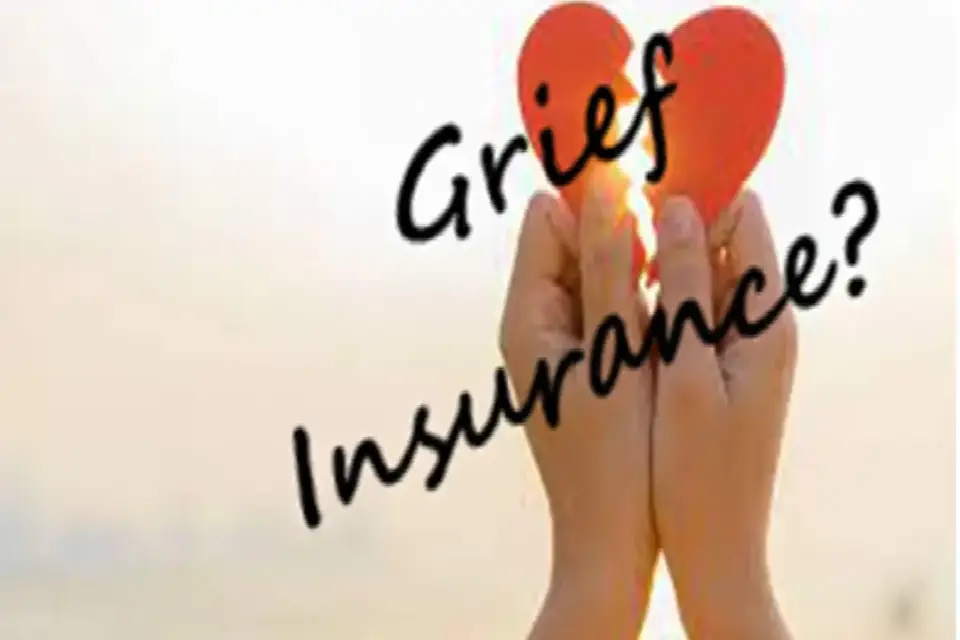Grief Insurance: Why People Say the Wrong Things After Loss

Navigating Hurtful Responses in Grief
When we find ourselves sharing the news that we’ve lost someone we deeply loved, the responses we receive are as varied as the people offering them. Often, these comments aren’t particularly helpful, simply because the topic of death and grief makes many people uncomfortable. But sometimes, those responses can be downright hurtful.
Over time in my own grief journey, I’ve come to recognize that most people don’t intend to wound us with their words. More often, their comments reflect their own discomfort or fear. They’re not blaming; they’re searching for a sense of safety. What they’re really doing is what I call “grief insurance.”
The “Insurance” Mentality
When someone hears about our loss, they instinctively try to reassure themselves that it won’t happen to them. You might hear things like:
- “Well, my husband takes care of himself, so that probably won’t happen to him.”
- “I work out and eat healthy, so I won’t have heart problems.”
- “I have kids who could give me a kidney if I ever needed one.”
- “We got the COVID shot, so we’re safe.”
These statements might seem harmless, but to someone actively coping with grief, they can feel invalidating or even accusatory. It’s as if your loved one’s death could have been prevented—if only they’d made different choices. But in reality, these comments are driven by a subconscious attempt to “insure” themselves against loss, to somehow create a sense of control over life and death.
Why People Say Hurtful Things
As painful as these remarks may be, they rarely come from malice. They arise from a deeply rooted fear—not just of death, but of being left by death. People say these things to convince themselves that they are safe from the type of loss you’re experiencing, to create the illusion of control over their lives.
When we are in the thick of grief and loss support, these unfiltered responses can make us feel even more isolated. But recognizing the root of these comments helps soften the sting—they’re not about your loss. They’re about someone else’s fear of having to one day face their own.
How to Handle These Responses
1. Don’t Take It Personally
It’s important to remember that these remarks are not a reflection of your grief or your loved one. They reflect someone else’s uneasiness. They are trying, however awkwardly, to navigate their discomfort in the face of your loss. Reminding yourself of this can help protect your heart as you navigate the conversations that follow a loss.
2. Extend Grace
When I first heard these types of comments, I was angry. As a widow, it felt like people were blaming my husband, or dismissing my heartbreak. But when I reflected on my own past, I realized that before I needed grief support for widows, I probably made some awkward comments myself. I simply didn’t know better.
Many people cannot fully grasp the layers of grief until they are in it. Extending grace in these moments is an act of compassion, not just for them, but for yourself.
3. Redirect the Conversation
If you feel up to it, try gently guiding the conversation in a healthier direction. You might say:
“I know you’re trying to make sense of this; it’s something I’m still working through, too. What I’m learning is that we can’t always control what happens in life, and that’s really hard to accept sometimes.”
This type of response acknowledges their discomfort while also modeling a more thoughtful approach to grief and loss support.
A Journey of Compassion
Grief is a deeply personal journey, but it’s also a universal one. Everyone will face loss at some point, and many people will stumble in their attempts to comfort others along the way. By understanding the motivations behind these “insurance” comments, we can respond with empathy rather than anger, and perhaps even help others grow in their understanding of grief.
Ultimately, these moments remind us of the importance of compassion, both for ourselves and for those who are still learning how to navigate the complexities of loss.
Grief is a deeply personal and often winding path, but it is also a shared human experience. Everyone will lose someone they love. Along the way, they will likely stumble in how they try to support others. That’s why we, as those currently walking this road, have a unique opportunity to show what real grief support looks like.
Whether you’re seeking grief support for widows, helping others cope with grief, or simply trying to understand the awkwardness of well-meaning responses, remember: healing comes not from perfection, but from compassion.
By offering understanding, we create space — for healing, for connection, and for growth — not just for ourselves, but for those who are still learning how to walk beside us.



